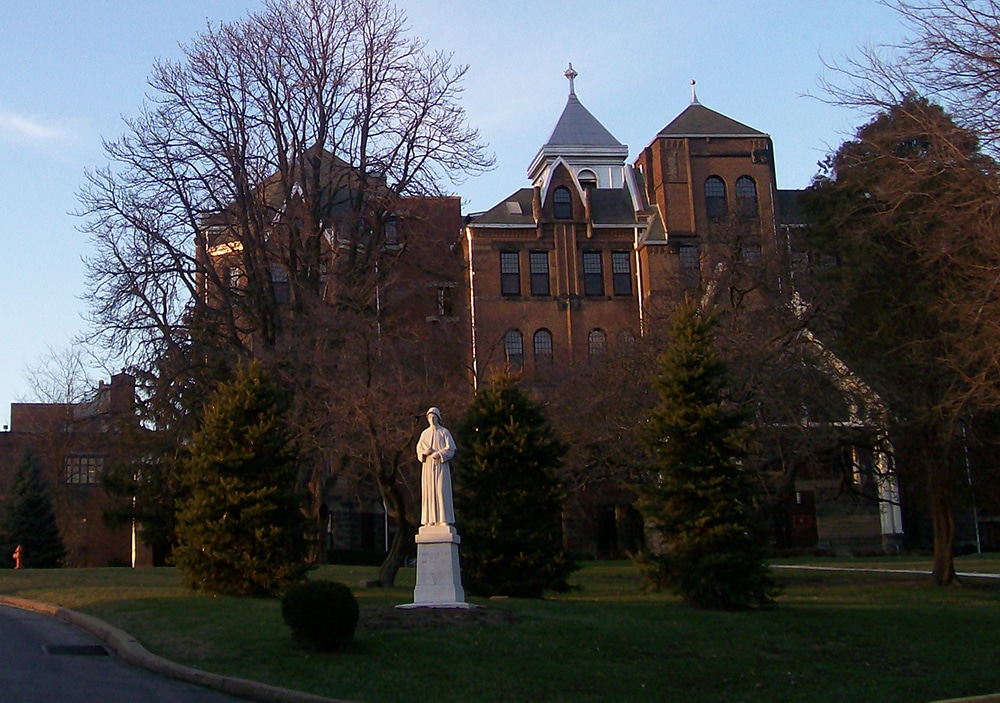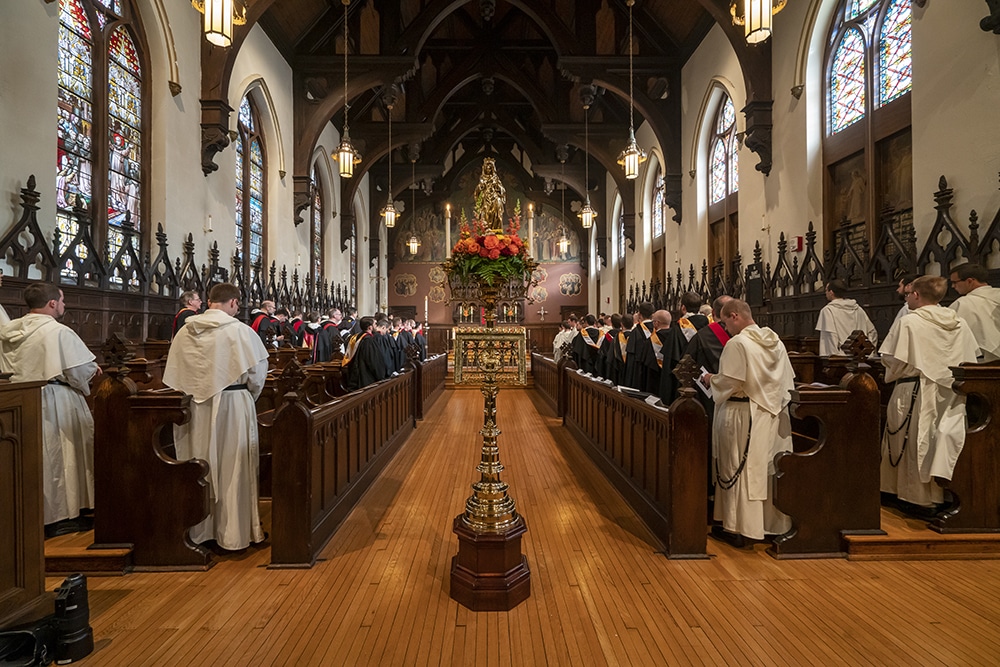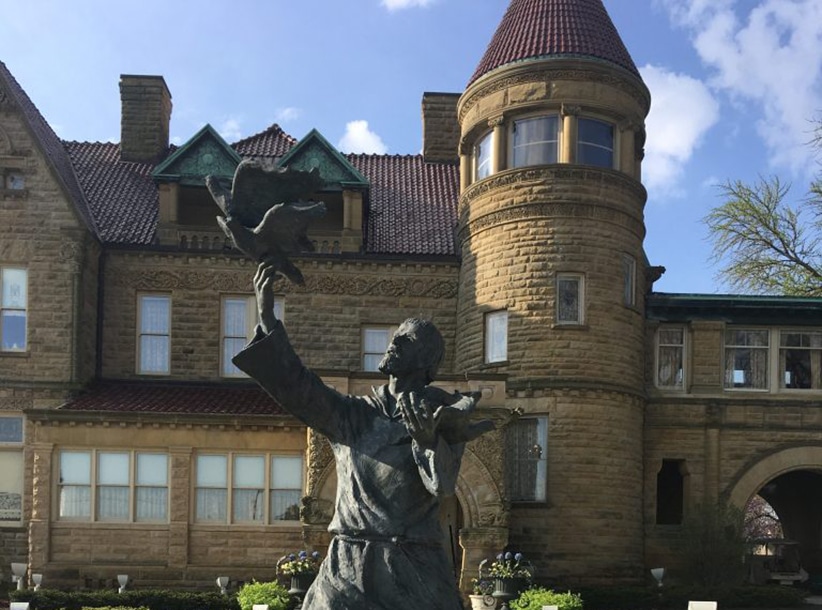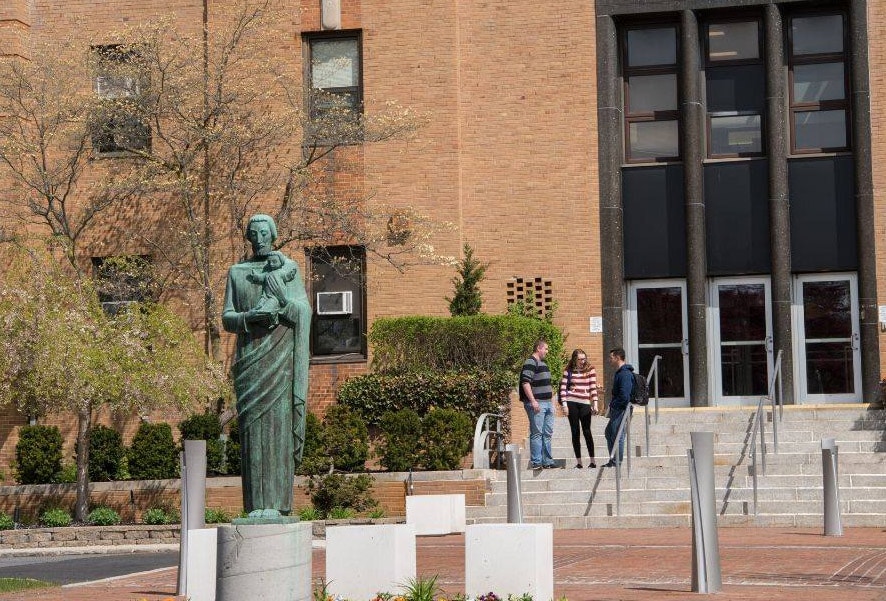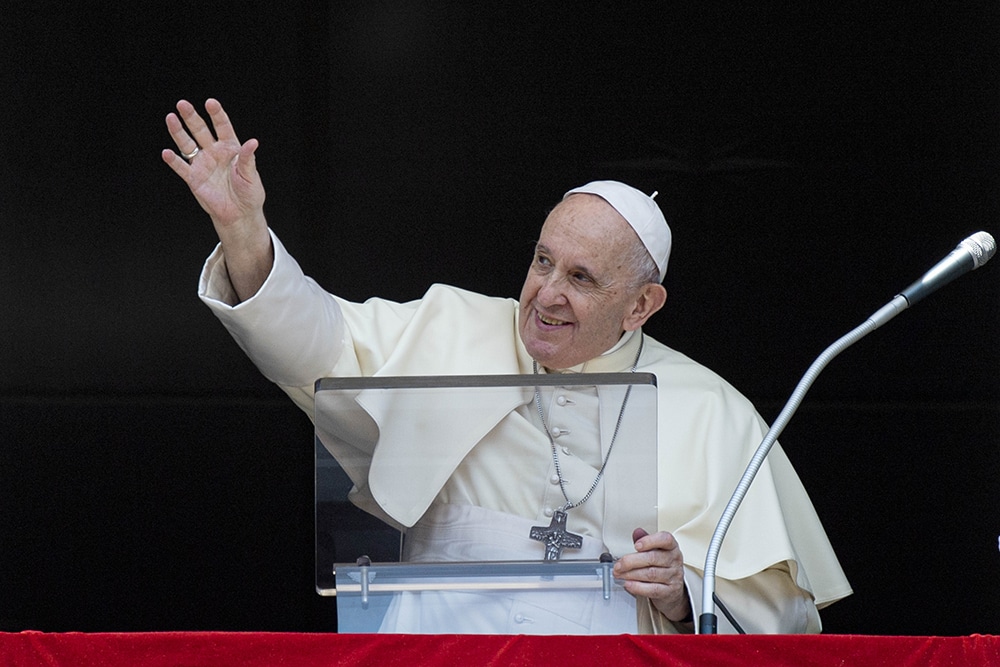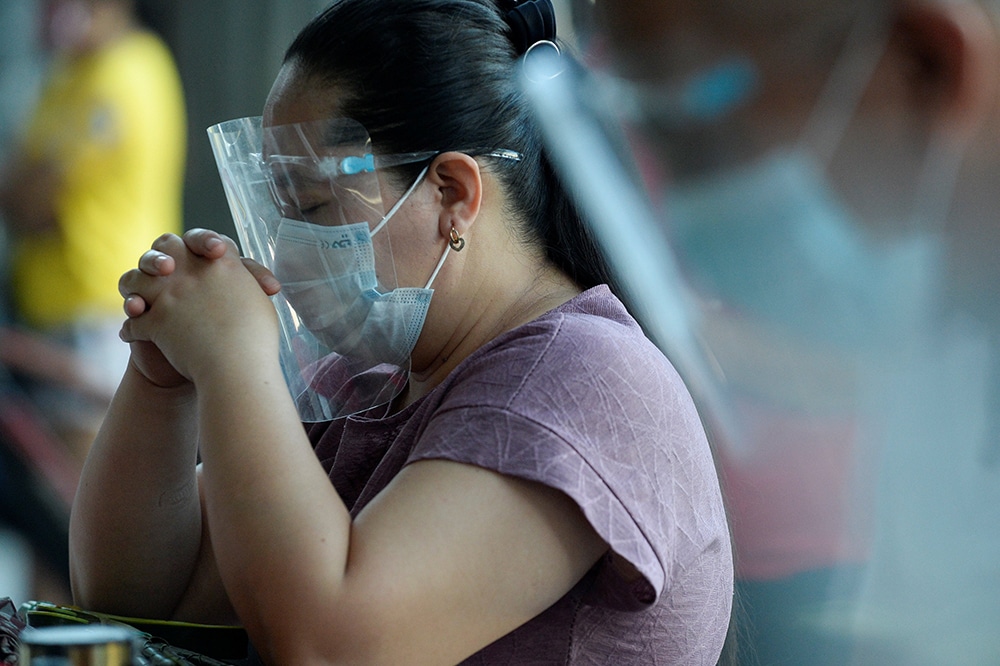The Seton family’s coat of arms declared, “Hazard yet forward.”
“We always use that phrase, especially during the past year with COVID,” said Sister of Charity Maureen O’Brien, the vice president for mission and identity at Seton Hill University in Greensburg, Pennsylvania.
“We just move forward in spite of the hazard, in spite of the obstacles,” Sister O’Brien told Our Sunday Visitor. “I think so much of that is demonstrated in the life of Elizabeth Ann Seton, and in the life of the Sisters of Charity. We’ve been where we felt God was calling us to be, and it hasn’t always been easy.”
Elizabeth Ann Seton, the first citizen born in the United States to be canonized a saint, knew firsthand life’s difficulties and setbacks. She became a widow with five children before she was 30 when her husband, William died, in 1803 from tuberculosis. Later she lost longtime friendships and social connections when she converted to Catholicism in 1805 after a trip abroad in Italy.
Read more from our Catholic Colleges Fall 2021 special section here.
“She had to raise a family after the death of her husband. That was the task that was in front of her,” Sister O’Brien said. “Do what is before you, and that’s what we try to do, not to sit back but to really look at the world and say how we can transform not only ourselves but how we transform the world. I think that’s especially significant in these COVID times.”
A model for college students
Meanwhile, at Seton Hall University in South Orange, New Jersey, “Mother Seton’s” legacy also continues to impact the spirituality of campus ministry and the charism of the religious women and priests who call the campus home.
“Her life and her inspiration have become more pronounced in my life over the years, even in terms of prayer,” said Father Gerald J. Buonopane, the minister for priests at Seton Hall University who is also a senior lecturer in the Department of Chemistry and Biochemistry.

“I’ll often turn to her in prayer,” Father Buonopane told Our Sunday Visitor. “A devotion in my own personal life has developed over these years, where certainly I would not have had that in seminary in my earlier life.”
Amanda G. Cavanagh, the assistant director of the Division of Volunteer Efforts (DOVE), a service component of the campus ministry at Seton Hall University, told Our Sunday Visitor that she and campus ministry leaders look to St. Elizabeth Ann Seton for inspiration.
“I think that’s always in the back of all of our minds, especially working at an organization where we do try to instill service in the Catholic mission in that way in campus ministry,” Cavanaugh said, adding that campus ministry often can have various programs inspired by St. Elizabeth Ann Seton, such as focusing on praying as she did.
“And in DOVE, everything that we do pretty much is a tribute to what she was and what she did for society, in being able to serve so many people and open so many schools and do so much good work,” Cavanaugh said. “That’s what we’re always trying to get to in our work at DOVE, to touch as many lives as possible, in a positive way and in a way that makes it clear we are Catholics, we are Christians and we are spiritual people across the board who want to make a difference and encounter Christ and have encounters like Elizabeth Ann Seton had as well.”
In 1809, Elizabeth Ann Seton moved to Emmitsburg, Maryland, where she founded the Sisters of Charity of St. Joseph’s, the first community for religious women established in the United States. She also founded St. Joseph’s Academy and Free School, which planted the seeds of Catholic parochial education in the new country.
“The fact that she was an American saint who was here, that she did her service here, is inspiring,” Cavanaugh said. “It reminds us that there are things we can do and are doing here as well, such as serving as tutors for underprivileged kids or reading at our story times on Fridays. I think Elizabeth Ann Seton is a very good role model for college students because everything she did is still possible for us.”
Transforming the world
Sister O’Brien, the vice president for mission and identity at Seton Hill University, said a quote attributed to St. Elizabeth Ann Seton also helps to guide the university’s mission: “I would wish to fit you for that world in which you are destined to live.”
“And that was pretty much her philosophy of education, and it’s ours,” Sister O’Brien said. “We talk a lot about transformational education. We ask our students when they do service, ‘How are you transformed? How do you transform others? In what way is education transformational for you and for the world?’ It’s always that education is not so much for me, but for the world.
Sister O’Brien said St. Elizabeth Ann Seton’s spirituality is infused on campus and in the life of the religious community she founded.
“It’s perceivable. You feel it and you feel it through our four pillars of welcoming, learning, serving and celebrating,” Sister O’Brien said. “They’re the tangibles through which her life and her values become infused into the lives of our students, faculty and staff. And we work really really hard at maintaining that mission and that awareness of Elizabeth.”
Seton Hill University also has an annual program for faculty and staff called “Journey with Elizabeth” that includes a monthly book club during the fall semester, a retreat on her feast day — Jan. 4 — and a study of the history of Seton Hill University and the Sisters of Charity during the spring semester.
“I think when students come to Seton Hill, even as prospective students, what many of them will say is they were attracted to the university because it was a warm welcoming community,” Sister O’Brien said. “And if you study the life of Elizabeth Ann Seton, you see that she was always welcoming people. That’s really important for us.
“Obviously, we’re a learning community. That’s why we exist, but again, it’s a holistic education,” Sister O’Brien added. “If you go back to Elizabeth Ann Seton in the first school she founded, it was very holistic. It wasn’t just to educate one part of the person, but to educate the whole person, which then makes them fit for the world. And I think in this environment they come to know the world, to face the difficulties and the challenges. We always say, ‘We do that as Setonians.’ And as Setonians, we do what is in front of us. We do what needs to be done.”
Brian Fraga writes from Massachusetts.

